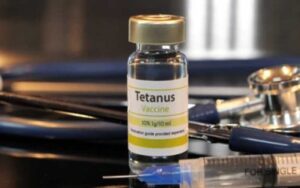China is a populous nation in East Asia whose vast landscape encompasses grassland, desert, mountains, lakes, rivers and more than 14,000km of coastline. Capital Beijing mixes modern architecture with historic sites such as the Forbidden City palace complex and Tiananmen Square. Shanghai is a skyscraper-studded global financial center. The iconic Great Wall of China runs east-west across the country’s north.
Recommended Travel Vaccinations For China
| VACCINE | HOW DISEASE SPREADS | PREVENTIVE ACTIONS |
| Hepatitis A | You can get Hepatitis A through contaminated food or water in China,regardless of where you are eating or staying. | Get vaccinated. Eat and Drink safely |
| Typhoid | You can get Typhoid through contaminated food or water in China especially if you are staying with friends or relatives, visiting smaller cities or rural areas, or if you are an adventurous eater. | Get vaccinated. Eat and Drink safely |
| Maleria | Malaria is a mosquito-borne infectious disease that effects humans and other animals.Malaria causes symptoms that typically include fever, tiredness, vomiting, and headaches.In severe cases it can cause yellow skin, seizures, coma, or death. You may need to take prescription medicine before, during, and after our trip to prevent malaria, depending on your travel plans, such as where you are going, when you are traveling, and if you arespending a lot of time outdoors or sleeping outside. | Take antimalarial meds Prevent bug bites |
| Yellow Fever | Yellow Fever is a mosquito-borne infectious disease and can get yellow fever through Mosquitos. Note: Recommended for all regions except Fortaleza and Recife | Get vaccinated Prevent bug bites |
| Japanese Encephalitis Vaccine | Japanese encephalitis (JE) is a disease spread through mosquito bites. Symptoms usually take 5-15 days to develop and include fever, headache, vomiting, confusion, and difficulty moving. | Get VaccinatedPrevent bug bites |
Routine Vaccinations For China
| VACCINE | HOW DISEASE SPREADS | PREVENTIVE ACTIONS |
| Measles, Mumps and Rubella Vaccination (MMR) | Measles, mumps, and rubella are viral diseases.Measles starts as a fever, cough, runny nose, conjunctivitis (pinkeye), and a red, pinpoint rash that starts on the face and spreads to the rest of the body.The mumps virus usually causes swelling in glands just below the ears, giving the appearance of chipmunk cheeks.Rubella is also known as German measles. It can cause a mild rash on the face, swelling of glands behind the ears, and in some cases, swelling of the small joints and low-grade fever. | Get vaccinated.Avoid sharing contacts with infected people.wash your hands using soap. Avoid infected person coughs, sneezes or even talks |
| Tetanus, Diphtheria and Pertussis (Tdap) Vaccination | Tetanus enters the body through breaks in the skin. This is most often cuts or wounds made by contaminated objects.Tetanus enters the body through a wound or cut. It affects the brain and nervous system and causes extremely painful muscle spasms.Diphtheria is a very contagious infection that makes it difficult to breathe. In severe cases, it can cause heart and nerve damage.Pertussis, or whooping cough, is an extremely contagious respiratory infection that can lead to severe breathing problems, especially in infants | Get vaccinated. |
| Chickenpox (Varicella) Vaccination | Chickenpox is a highly contagious infection caused by the varicella-zoster virus. It causes a blister-like rash across the body.Chickenpox can spread from someone with shingles to other who has never had the disease. This happens if a person touches or inhales droplets of the shingles blisters. | Get vaccinated.Avoid sharing contacts with infected peopleAvoid sharing contacts with infected people |
| Polio Vaccination | “Polio (poliomyelitis) is a potentially deadly, life-altering disease. The virus enters the body and attacks the brain and spinal cord, often causing paralysis | Get vaccinated.Avoid sharing contacts with infected people.Avoid contaminated food or water, though sneezes or coughs can transmit the virus |
| Flu Shot | The flu vaccine is the most effective way to prevent illness caused by seasonal influenza viruses. The flu vaccine reduces a person’s risk of developing flu-related illness | Avoid sharing contacts with infected people.Avoid contaminated food or water, though sneezes or coughs can transmit the virus |










